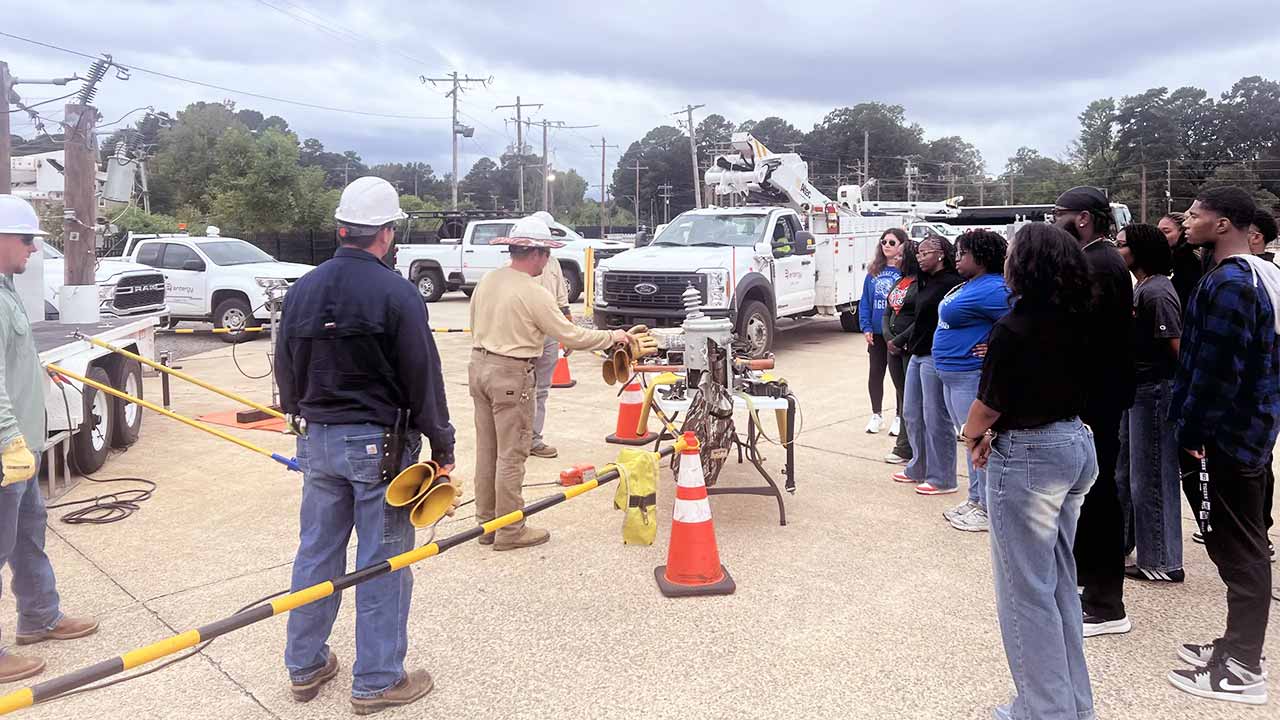Some of the best and brightest STEM students at Historically Black Colleges and Universities in the region visited Little Rock as part of the fourth annual Accessing Careers in Energy Summit. This event allowed students to come together to explore career opportunities in the energy industry and for many, it was an eye-opening experience.
Take Keilani Scott, a junior computer engineering major from Tuskegee University. Before ACES, she admits she hadn’t given much thought to the energy sector. “I’d never really thought about energy companies and how they work,” she said. But after seeing real-world demonstrations that connected directly to the theories she studies in class, her perspective changed. “It tied those two worlds together and opened my eyes to new possibilities. I would seriously consider working for a company like Entergy.”
For Pine Bluff native Ernest House, a senior mechanical engineering student also at Tuskegee, the summit expanded his vision of what an energy career could look like. With a math degree already under his belt and a passion for thermodynamics, House discovered pathways ranging from designing transformers to working hands-on as a field engineer. What stood out most to him, though, was the genuine support from industry professionals. “People weren’t just giving generic advice,” he said. “They shared personal experiences and insights that you can’t just Google.”
Over the three-day event, students heard directly from industry leaders. Executives from Entergy, Midcontinent Independent System Operator, and Southwest Power Pool joined the program to share insights about the industry’s future. Entergy Arkansas was represented by Ventrell Thompson, vice president of customer service, and Jarred Neal House, manager of information security engineering, who both offered advice and encouragement to students exploring careers in energy.
In addition to networking and panel discussions, students also got hands-on exposure. A highlight was the Entergy Baseline Training Center Arcs and Sparks Truck Demo, where students witnessed safety and technical demonstrations up close. They also took part in a case study competition, where four-member teams competed for $30,000 in prizes by solving tough challenges in mitigating cyber risks for high-load utilities, an exercise that mirrored the complex decisions professionals face in the field.
Both Keilani Scott and Ernest House emphasized how vital programs like ACES are in connecting underrepresented students to opportunities they may not otherwise see. Exposure, networking, and mentorship are key to building a more diverse and prepared energy workforce. As House noted, “A lot of us didn’t grow up with access to these resources. Programs like ACES open doors and show us what’s possible.”
For Entergy Arkansas, this mission ties directly to the importance of workforce development. By investing in students today, the company is helping build the diverse, skilled workforce needed to power our communities tomorrow. Events like ACES don’t just showcase career paths, they inspire the next generation of innovators who will keep the lights on and shape the future of energy.



